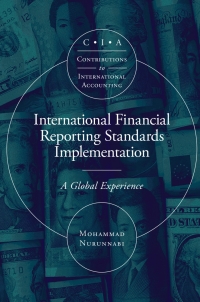Question
5. A payment by a taxpayer to a former spouse pursuant to an agreement executed in 2018 may qualify as alimony taxable to the recipient
5. A payment by a taxpayer to a former spouse pursuant to an agreement executed in 2018 may qualify as alimony taxable to the recipient and deductible by the payor even though:
a) The payment is to a third party.
b) The payment is designated as child support.
c) The liability to make the payment would survive the recipient spouses death.
d) The payment isnt made in cash.
6. Which of the following is taxable interest in 2020?
a) Interest income from a below-market loan that is a $10,000 gift loan not used to buy or carry income-producing assets.
b) Interest on a municipal bond.
c) Interest on a CD that was purchased in July of 2019 and matures in January 2020.
d) Interest on a CD that was purchased in July of 2020 and matures in January of 2021.
7. Adam and Sasha Brooks have EE bond interest of $3,500 on bonds bought in January 1997 and redeemed in November 2020, all of which is used for qualified higher educational purposes for their daughter. The couples modified adjusted gross income is $138,550. How much is their excludable interest on the bonds?
a) $0
b) $420
c) $1,750
d) $3,500
8. A taxpayer receives a refund of state income taxes from the prior year. How should this refund be treated?
a) The refund is always treated as income in the current year.
b) The refund is treated as income in the current year if the taxpayer did not itemize deductions in the year the state taxes were paid.
c) If the taxpayer elected to deduct state general sales tax in the year the taxes were paid, the refund is treated as income in the current year.
d) If the taxpayer elected to deduct state income taxes in the year they were paid, the refund is treated as income in the current year to the extent the deduction produced a tax benefit.
9. Which of the following is not included in gross income?
a) Bribes received.
b) Income from a hobby activity.
c) Child support.
d) Strike benefits paid by a union from union dues.
Step by Step Solution
There are 3 Steps involved in it
Step: 1

Get Instant Access to Expert-Tailored Solutions
See step-by-step solutions with expert insights and AI powered tools for academic success
Step: 2

Step: 3

Ace Your Homework with AI
Get the answers you need in no time with our AI-driven, step-by-step assistance
Get Started


